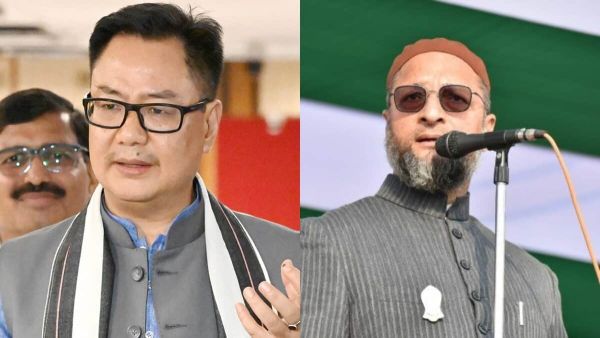
Hyderabad: Hyderabad MP and All India Majlis e Ittehad Ul Muslimeen (AIMIM) president Asaduddin Owaisi on Monday, July 7, criticized Union minister for Parliamentary Affairs Kiren Rijiju over his statement that minorities in the country are “benefiting” more from the government than Hindus. “Whatever Hindus get, minorities get too. But what minorities get, Hindus don’t,” Rijiju had said.
Responding sharply, Owaisi wrote on X, “You are a Minister of the Indian Republic, not a monarch. You occupy a constitutional office, not a throne. Minority rights are fundamental rights, not charity.”
He also questioned, “Is it a ‘benefit’ to be addressed as Pakistani, Bangladeshi, jihadi, or Rohingya every day? Is it ‘protection’ to be lynched? Is it protection that Indian citizens were abducted and forced into Bangladesh?”
Owaisi’s response comes amid growing concerns over hate crimes, illegal demolitions in Muslim neighbourhoods, cuts to minority scholarships, and the reshaping of Waqf Boards.
Referring to the controversial Waqf Amendment Act, Asaduddin Owaisi accused the government of undermining Muslim institutions. “Can Muslims be members of Hindu Endowment Boards? No. But your Waqf Amendment Act forces non-Muslims onto Waqf Boards, and allows them to form a majority,” he said.
The amendment, which was enacted in 2023, eliminated the compulsory requirement that Waqf Board members be part of the Muslim community, a step minority leaders claim dilutes Muslim majority control over Waqf properties, which are religious endowments to be used for community well-being.
He also criticized the government for halting the Maulana Azad National Fellowship and cutting support for pre-matric, post-matric, and merit-cum-means scholarships. “All because they benefited Muslim students,” he said.
Referring to government statistics, Owaisi explained that Muslims are the sole community whose strength in higher education has decreased. They have increased in the informal economy and were among the worst affected by recent economic policies.
“Indian Muslims are the only group whose kids are now poorer than their parents or grandparents. Inter-generational mobility has turned around,” he said, concluding that India’s minorities are not asking for charity, but social, economic, and political justice.